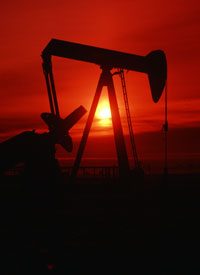
S. 22 is a mammoth piece of legislation combining over 160 bills and running to more than 1,300 pages. It is loaded with pork-barrel spending and harmful provisions, but the most objectionable features of the bill are those that would lock up millions of acres of our most promising areas for badly needed oil, natural gas, and mineral production.
Sponsored by Senators Jeff Bingaman (D-N.M.) and Harry Reid (D-Nev.) and originally introduced in the 110th Congress, the Omnibus Public Land Management Act of 2009 passed the Senate on January 15 and is now awaiting action in the House of Representatives. The lopsided 73-21 vote (with four not voting) saw 19 Republicans join with the liberal-left Reid-Boxer-Schumer Democrats in favor of the lock-up. Those Republican senators are: Alexander (Tenn.), Barrasso (Wyo.), Bennett (Utah), Bond (Mo.), Cochran (Miss.), Collins (Maine), Corker (Tenn.), Crapo (Idaho), Enzi (Wy.), Gregg (N.H.), Hatch (Utah), Lugar (Ind.), Martinez (Fla.), Murkowski (Alaska), Risch (Idaho), Snow (Maine), Specter (Pa.), Voinovich (Ohio), and Wicker (Miss.).
Sen. Tom Coburn (R-Okla.), one of the principal opponents of the legislation, outlined some of the many egregious features of the legislation in a press release on his Senate website.
• A provision that takes about 8.8 trillion cubic feet of natural gas and 300 million barrels of oil out of production in Wyoming, according to the Bureau of Land Management. The energy resources walled off by this bill would nearly match the annual production levels of our two largest natural gas production states — Alaska and Texas.
• $3 million for a “road to nowhere” through a wildlife refuge in Alaska.
• $1 billion for a water project designed to save 500 salmon in California. At this price, each salmon would be worth far more than its weight in gold.
• $3.5 million to help celebrate the 450th birthday of St. Augustine Florida, in 2015….
• $5 million on botanical gardens in Hawaii and Florida.
“If the Senate wants to debate lands legislation once we’ve helped stabilize the economy we should begin by better managing the land we already oversee,” says Dr. Coburn. “We have a $9 billion maintenance back log within the national park service because Congress prefers to create new pet projects rather than responsibly oversee the parks we’ve already created. Moreover, we are not suffering from a lack of wilderness areas in the United States. According to the Census Bureau, we have 106 million acres of developed land and 107 million acres of wilderness land. What we are suffering from, however, is a lack of common sense in Washington.”
Other critical analyses of the bill by the Competitive Enterprise Institute (CEI) and the Republican Study Committee (RSC) point out many ways S. 22 threatens our nation’s economic viability. Those provisions include:
• Blocking millions of acres from new oil and gas leasing, logging, mining, and all other business activity in these areas.
• Eliminating 1.2 million acres from mineral leasing and energy exploration in Wyoming alone — withdrawing 331 million barrels of recoverable oil and 8.8 trillion cubic feet of natural gas from domestic energy supply.
• Designating more than two million acres of land as wilderness areas and permanently eliminating human access to these areas for energy exploration or recreational opportunities.
• Eliminating a proposed terminal site for importing liquefied natural gas (LNG) in Massachusetts by designating a river that runs through a city as “wild and scenic."
• Authorizing $5.5 billion of new discretionary spending and $915 million of direct spending.
• Codifying the National Landscape Conservation System (NLCS) within the Bureau of Land Management (BLM), creating a duplicative agency that will tend to greatly restrict or eliminate ranching, mining, logging, hunting, fishing, and recreation on BLM’s massive land holdings.
• Adding over 80 new wilderness designations or additions to federal lands.
The Republican Study Committee’s critique of S. 22 notes:
The federal government already owns nearly 650 million acres of land, which amounts to 30 percent of the total land area of the United States. The District of Columbia, established by the Constitution as the federal city, has only 24.7% of its total acreage owned by the federal government. Twelve states rank above DC in federal land ownership. 85% of Nevada is federally owned and the federal government occupies more than 45% of the land in California.
Pew and other public opinion polls have shown repeatedly that Americans favor more offshore drilling for gas and oil and favor opening up the Arctic National Wildlife Refuge (ANWR) to drilling, along with other public lands that have been put off limits. With the likelihood that gasoline prices could again shoot up into the $4 range (or higher), it not only makes good economic sense, but also makes good national security sense, since greater domestic production would mean less dependence on foreign suppliers and less transfer of our wealth to regimes that may mean us ill. Instead of yielding to these common sense proposals supported by the public, Senate Democrats and some Senate Republicans have joined hands to tighten the energy stranglehold on America’s energy jugular. Now the fight has moved to the House, and it will take an outpouring of public outrage to stop this legislation and the harm that it would do.
Photo: AP Images



